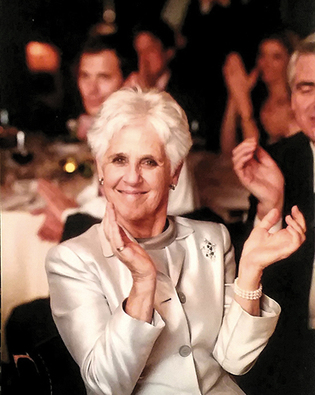 loading
loading
From the EditorGentle. But a dynamo.Diane Straus ’73 was a standout in tennis and journalism.  Belathée PhotographyView full imageAs far as I know, only once did I genuinely disturb Diane Straus ’73. It happened after the Yale Alumni Magazine published a short piece that mentioned the first women’s varsity team in Yale College. As soon as the magazine came out, Diane (pictured here) called me and gently said we were mistaken: the women’s tennis team, which Diane founded soon after entering Yale with the first class of freshwomen, had been first. I say “disturb,” but it’s a relative term. Diane (pronounced Dee-ANN) oversaw many large and complicated projects throughout her life: heading several major journalism enterprises, raising a family, helping run the presidential campaign of her friend Howard Dean ’71, volunteer work for Yale and others, and, always, tennis and platform tennis. But I never saw her flustered or rattled. Concerned, yes, but that’s about the extent of it. I met her in 2004, when she joined the magazine’s board; she later served as chair, and after that as publishing adviser, generously sharing with us her wide knowledge of the complicated strategies of magazine funding and advertising. (We are leaving her name on the masthead in this issue, as a final salute.) She was refined and effortlessly genteel in a way very few people can match. But almost as soon as you met her, you knew she was made of steel. Diane died in late December of colon cancer, the same disease that had killed her mother. She was only 66. She left behind three children, two sisters, her long-term partner, and a wealth of people who knew and admired her. She loved journalism. Her father had owned many radio stations and newspapers in New York State, and her mother had helped to run one of the stations (and was a cousin of a publisher of the New York Times). After college, Diane worked for New York and the Village Voice. She would eventually become the publisher of the American Prospect and later the Washington Monthly, adding fund-raising to their standard business model of subscriptions and advertising. Paul Glastris, editor of the Monthly, told the Washington Post after Diane’s death that she had been critical to keeping the Monthly alive. As for tennis and especially platform tennis, Diane was supreme. She won 29 national championships in platform tennis. She played tennis only with men; she was just too good for most women to compete with. Her friend Steve Blum ’74, a senior director at the Association of Yale Alumni, remembers inviting her to a game with several male friends. There was a feeling of regretful patience among the men, who expected to have to soften their shots. By the end of the game, Steve says, that feeling had changed to one of “you almost have to apologize for being on the same court.” Diane was a giver. “What I see in Diane,” says her friend Laura Handman ’73, an attorney at Davis Wright Tremaine, is “determination but gentleness—always generosity.” She was “always wanting to help.” It was Steve Weisman ’68, an author, former New York Times reporter, and former chair of our board, who recruited her to the magazine. He wrote me after she died: “She was a gem among gems.”
The comment period has expired.
|
|